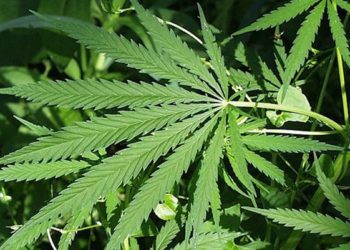Differences in presenting emergency department symptoms for inhaled vs edible cannabis use
1. The authors of this chart review observed that a greater proportion of visits attributed to cannabis use were related to inhaled use rather than ingestion.
2. Patients who were admitted with edible-related cannabis exposures were more likely to have cardiovascular symptoms and acute psychiatric events than patients admitted for inhaled-related cannabis exposures.
Evidence Rating Level: 2 (Good)
Study Rundown: Colorado legalized medical cannabis in 2009 and recreational use in 2014. With legalization of this drug, Colorado has seen increased emergency department (ED) visits related to cannabis intoxication. The authors of this study aimed to describe adult ED visits related to the use of edible and inhaled cannabis. They observed that there was greater frequency of ED visits related to inhaled cannabis compared to edible cannabis. However, the authors also noted that edible products were more likely to lead to acute psychiatric events and cardiovascular symptoms. One of the main limitations of the study that the authors acknowledged was the study design. As it is retrospective, it may not be fully representative of current cannabis trends in Colorado. Furthermore, the authors relied on self-reporting to obtain exposure data, making the data susceptible to recall bias.
Click to read the study in Annals of Internal Medicine
Relevant Reading: Cannabis acute use impacts symptoms and functionality in a cohort of antipsychotic naïve First Episode of Psychosis individuals
In-Depth [retrospective cohort]: The authors of this study conducted a chart review of ED visits from between January 1 2012 and December 31 2016. Researchers reviewed health records for 9 973 patients presenting to the University of Colorado Hospital ED. The primary outcomes assessed were patient demographics, route of exposure, dose, symptoms, length of stay, discharge diagnosis and attribution of visit to cannabis. In total, 9.3% of the cannabis-related visits were associated with edible cannabis. The most common reason for cannabis-related visits to the ED was cannabinoid hyperemesis syndrome (range, 1 to 17 visits per patient per year), followed by intoxication (n = 762, 29.7%) and then psychiatric symptoms (n = 633, 24.7%). The authors observed that patients who were admitted for inhaled cannabis use were more likely to have issues with cannabinoid hyperemesis syndrome, while patients with edible cannabis use were more likely to have acute psychiatric concerns, intoxication, and/or cardiovascular symptoms. For example, 18.0% of visits related to inhaled cannabis were for cannabinoid hyperemesis syndrome, compared to 8.4% of visits for ingested cannabis. The absolute difference in visits related to cannabinoid hyperemesis syndrome for edible compared to inhalable exposure was -9.6 [edible – inhalable, (95% CI, -5.7 to -13.5)]. In contrast, 18.0% of visits related to edible cannabis was connected to acute psychiatric symptoms, compared to only 10.9% of visits due to inhaled cannabis. The absolute difference for acute psychiatric symptoms was 7.1 (95% CI, 2.1 to 12.1).
Image: PD
©2019 2 Minute Medicine, Inc. All rights reserved. No works may be reproduced without expressed written consent from 2 Minute Medicine, Inc. Inquire about licensing here. No article should be construed as medical advice and is not intended as such by the authors or by 2 Minute Medicine, Inc.





